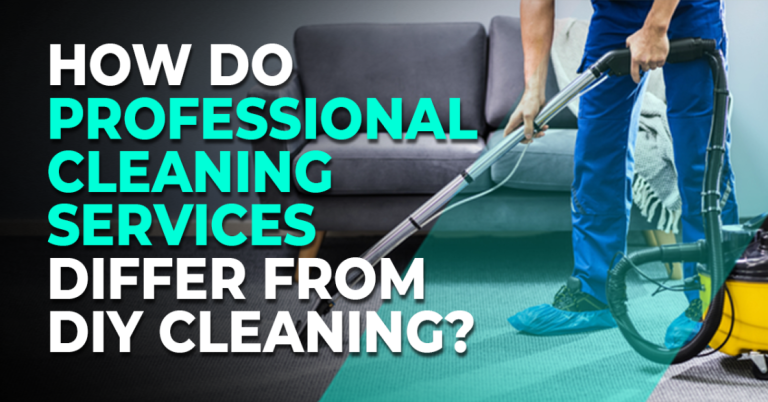Licensed And Insured

What Cleaning Products Do House Cleaning Services Use?
When it comes to house cleaning, having the right cleaning products is essential for achieving a clean and healthy living space. Using effective cleaning products can make a significant difference in the results of your cleaning job. Professional cleaning services often have a comprehensive cleaning supplies list and use specialized products to clean different surfaces and areas of your home.
Maintaining a clean and hygienic home is essential for our health and well-being. While regular cleaning is necessary, using effective cleaning products is equally important. The correct cleaning supplies guarantee a thorough cleaning and aid in limiting the spread of bacteria and germs.
In this blog post, we’ll discuss the value of employing efficient cleaning goods and briefly run down the most popular categories of cleaning supplies. Understanding the various cleaning products, from all-purpose cleansers to ones specifically designed for carpets and furniture, will help you maintain a pristine and healthy house.

Types of Cleaning Products
All-Purpose Cleaners: These are adaptable cleaning agents that can be used for various surfaces, such as walls, floors, and worktops. They are made to clean, disinfect, and deodorize surfaces and are often sold in spray bottles.

Bathroom cleaners: These supplies are specifically used to clean bathroom fixtures like sinks, showers, and toilets. They work well to remove mildew, soap scum, and other bathroom stains.

Kitchen cleaners: Kitchen cleaners are versatile and can be used on various kitchen surfaces such as countertops, stovetops, cabinets, and appliances. They are designed to remove grease, grime, and food residue effectively. These cleaners are available in spray or liquid form and often contain degreasers and surfactants to break down and lift away tough stains and dirt.

Glass Cleaners: Glass cleaners are specifically designed cleaning products that are used to clean and maintain the cleanliness and clarity of glass surfaces. Glass cleaners typically come in spray or liquid form and contain ingredients such as solvents, surfactants, and ammonia. These ingredients help dissolve and lift the dirt particles from the glass surface, leaving it clean and streak-free. Glass cleaners are commonly used on windows, mirrors, glass tabletops, glass doors, and other glass surfaces both at home and in commercial settings.

Factors That Affect Cleaning Product Selection
When selecting cleaning products, there are several factors to consider, including:
1. Surface types and materials: Different surfaces require different cleaning products. For example, you would use a different cleaner for hardwood floors than you would for carpets.
2. Specific cleaning challenges: Some surfaces or areas may have unique cleaning challenges, such as stains, grease, or soap scum. In these cases, you would want to choose a cleaning product that is specifically designed to address those challenges.

3. Customer preferences and requests: Some customers may have preferences or requests for specific types of cleaning products, such as eco-friendly or non-toxic options.
4. Budget considerations: Cleaning products can vary widely in price, so it’s important to consider your budget when selecting products.
Choosing the Right Cleaning Products

Choosing the right cleaning products is important for maintaining a clean and healthy environment. Here are some tips for selecting effective and safe cleaning products, along with recommendations for eco-friendly and non-toxic options:
1. Read the Labels: Before purchasing any cleaning product, carefully read the labels and look for important information such as the ingredients, usage instructions, and safety precautions. Avoid products that contain harsh chemicals or ingredients that may harm your health or the environment.
2. Look for Certified Products: Seek out cleaning products with certifications from reputable organizations, such as Green Seal, EcoLogo, or USDA Organic. These certifications indicate that the product meets specific environmental and safety standards.
3. Choose Eco-Friendly Options: Opt for cleaning products that are environmentally friendly and biodegradable. Look for products that are made from plant-based or natural ingredients and avoid those containing phosphates, chlorine, or artificial fragrances.

4. Non-Toxic Formulations: Select cleaning products free from harmful chemicals such as ammonia, formaldehyde, phthalates, or parabens. These substances can be hazardous to your health and contribute to indoor air pollution.
5. Consider Concentrated Products: Concentrated cleaning products can help reduce waste and packaging. They often require dilution before use, allowing you to customize the cleaner’s strength based on your needs.
6. DIY Cleaners: Consider making your own cleaning solutions using simple household ingredients such as vinegar, baking soda, lemon juice, and hydrogen peroxide. These ingredients are effective for various cleaning tasks and are safe and non-toxic.

7. Test Before Use: When trying a new cleaning product, it’s always a good idea to first test it on a small, inconspicuous area to ensure it doesn’t cause any damage or discoloration.
8. Consider Packaging: Look for cleaning products that use minimal packaging or packaging made from recycled materials. Additionally, choose products that can be refilled, reducing the need for single-use containers.
Final Thoughts
It’s important to note that different cleaning services may have their own preferred brands or product selections. Furthermore, non-toxic and eco-friendly cleaning supplies are gaining popularity. Many house cleaning services now offer environmentally friendly alternatives that are safe for both humans and the environment.
When selecting a house cleaning service, it’s a good idea to inquire about the cleaning chemicals they use and discuss any specific preferences or concerns you may have. This ensures that the cleaning products align with your expectations for both cleanliness and safety.



